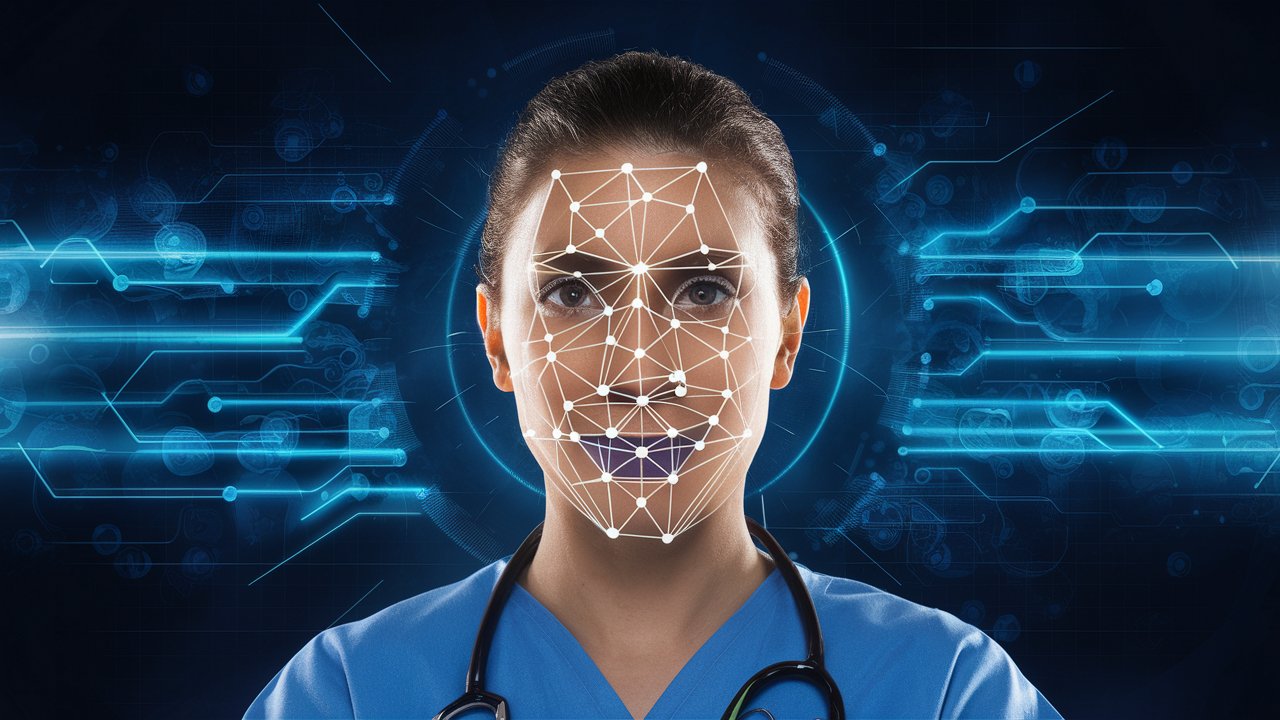Computer vision, artificial intelligence, and facial recognition have become a new norm in healthcare, streamlining the delivery of medical services and transforming the lives of many patients. This blend of innovation and technology has enabled healthcare sectors to offer excellent and astonishing applications to patients, enhancing customer loyalty and trust. A study indicates the global AI healthcare market is set to grow at a CAGR value of 41.5% from 2019 to 2025, highlighting the enormous use of artificial intelligence in hospitals. Facial recognition technology integrated with AI is bringing incredible advancements in the healthcare sector, offering accurate identification of patients, ensuring data security, and improving patient convenience.
The Science Behind: How Facial Recognition Works?
AI facial recognition identifies and verifies the persona of an individual by analyzing the unique and distinct facial landmarks. The person’s facial features including the distance between both eyes, the shape of the nose, the contour of the jawline, or the depth of the mouth are captured minutely and stored in a facial template. The registered template is a mathematical expression of the human face, making it easier for the system to discern between individuals.
When a person seeks to log into services or systems, a specialized facial recognition camera captures the image and separates the face from the rest of the objects in the frame. The facial features are analyzed and extracted to create a template. The facial template is matched against the registered dataset of identities, for accurate matching the person claiming identity is authenticated. For non-matching or any inconsistency the identity is flagged and restricted from entering the systems.
Key Use Cases of Facial Recognition in Hospitals
Hospitals are extensively employing facial recognition services to facilitate numerous operations and ensure incredible service delivery.
- Patient Identification & Secure Access Control
Facial recognition actively verifies the patient’s identity, enabling the patient to access medical services and treatments effortlessly. The technology authenticates genuine individuals only and restricts unauthorized individuals from entering the systems, reducing the risks of fraudulent identities. As medical ID fraud is accelerating at an alarming rate, accurate authentication of patients ensures that only deserving individuals are provided access to services, and fake identities are flagged in real time.
AI facial recognition facilitates secure access control, restricting patients from entering highly sensitive areas like pharmacies or facilities where patient records are stored. Moreover, it restricts patient’s entry to the areas or buildings where only staff members are allowed to go.
- Patient Care: Monitoring & Diagnosis
Facial recognition services have offered innovation in almost every domain of healthcare, and diagnosis is no exception, when combined with emotion recognition, it helps to get better insights into a patient’s health. The technology facilitates the diagnosis of certain diseases, detects pain, and monitors patient health status, enabling hospitals to offer requisite care to the patients.
Research is underway to unlock the potential of facial recognition to evaluate the symptoms of ailments in their early stages by minutely analyzing facial features linked to specific diseases. Furthermore, the technology offers non-invasive and contactless services, ensuring hygiene and making it effortless for patients to access services just by scanning their faces.
- Faster Check-in & Check-out
Facial recognition makes the check-in and check-out process easier and swift, allowing users to prove their identities in a matter of seconds and reducing the workload of hospital staff. The technology eliminates the need to carry physical ID documents to authenticate patients, rather the identities are verified just by scanning and analyzing the patient’s face in real time. AI facial recognition fed with a vast amount of dataset of identities accurately authenticates genuine patients, reducing the risks of false identification
- Enhanced Security & Efficiency
Security, the most prominent application of facial recognition services, scans the presented faces effortlessly and in an automated approach, allowing only genuine individuals to enter the system. Facial recognition integrated with artificial intelligence and liveness detections ensures that whether the patients are accessing services online or on-premises, only genuine patients are authenticated, while spoofed attacks or mask attacks are actively flagged and their entry is restricted. Moreover, the technology enables hospitals to expedite the medical service delivery and numerous operations, improving the overall efficiency of the systems.
- Improved Patient Convenience
Facial recognition dispenses with the need to carry physical ID documents and verifies the patient’s identity by scanning their faces, offering contactless and hygienic ID verification. The technology automates the onboarding and check-in & check-out process, making it easier for patients to prove their identities and reducing the wait times.
Concluding Thoughts
AI facial recognition is upgrading the healthcare sector by offering incredible advancements and innovations. The advanced technology is set to grow in upcoming years and continuous innovations are anticipated in terms of efficiency and security. However, important considerations regarding privacy concerns and biased results are persistent. The careful implementation of technology and effective mitigation of the challenges is essential to unlock the full potential of facial recognition services.

